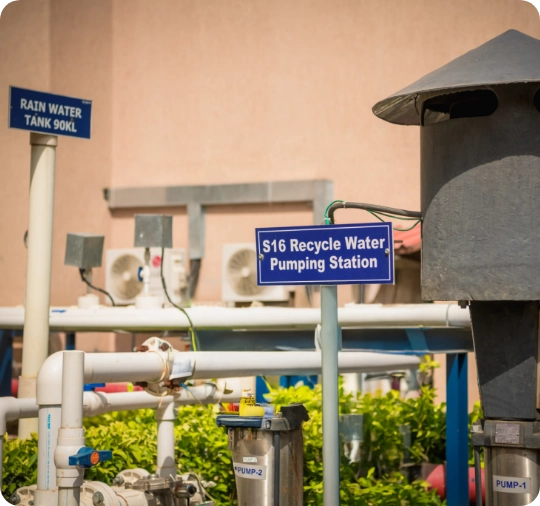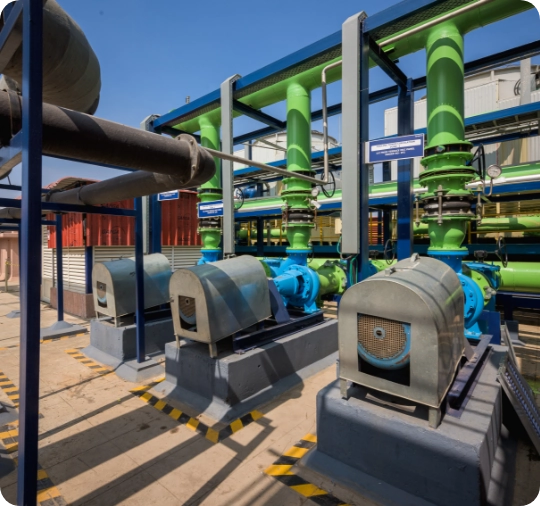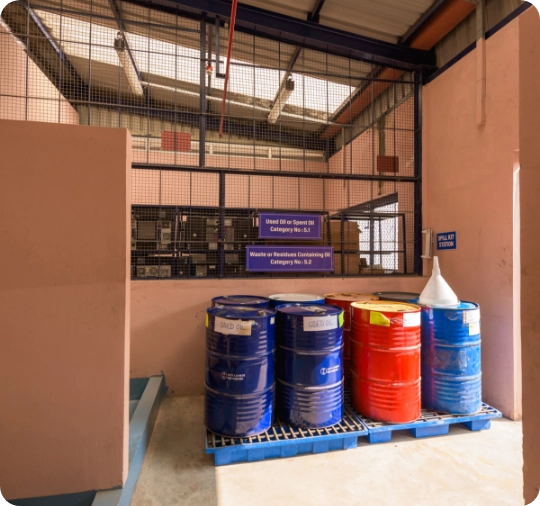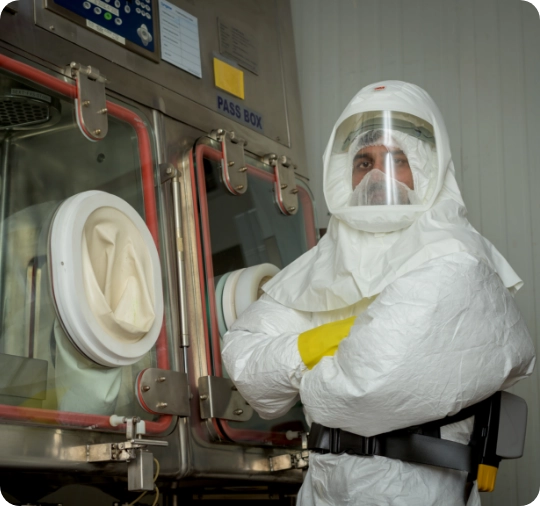In celebration of World Environment Day 2024, employees planted 1,000 saplings across our Bengaluru, Hyderabad, and Mangaluru campuses, contributing to land restoration, drought resilience, and biodiversity conservation. Syngene in collaboration with the forest department, Govt. of Karnataka has developed one hectare (2.47 acres) of barren forest into a green cover in Bhoothanahalli forest range of Anekal Taluk, Bengaluru. This tree plantation initiative supports biodiversity and carbon sequestration in the neighbouring community.
As part of our commitment to reducing environmental impact, we are transitioning to recycled paper across our Bengaluru and Hyderabad campuses, significantly cutting down on virgin paper usage. Notably, our Hyderabad campus has fully shifted to using 100% recycled A4 paper for all printing and copying needs since Feb 2025. This paper is certified by the Forest Stewardship Council (FSC), an international non-profit organization that promotes responsible management of the world’s forests. FSC certification ensures that the recycled paper meets strict environmental and social standards and is made from 100% post-consumer recycled fiber and supports responsible waste management. We will continue to monitor and quantify the resource savings and reduction in carbon emissions as the transition expands to other identified processes. To promote eco-friendly practices, we introduced plantable notebooks, pens, and pencils that grow into plants after use, thus encouraging sustainable habits and making sustainability a part of everyday work life.
Our water conservation efforts focus on efficiency, innovation, and long-term sustainability. We implemented initiatives across campuses to reduce freshwater use, enhance reuse, and improve storage capacity.
At our Bengaluru sites, we introduced waterless urinals, aerated taps, and flow restrictors. Recycled and RO reject water now replace freshwater in restrooms, scrubbers, cooling towers, and icemakers. At Biocon Park, all blocks use recycled water for flushing, while AHU condensate and treated sewage are used for flushing and gardening, respectively.
At Bengaluru and Mangaluru, rainwater harvesting systems collected over 11,433 KL as of March 2025. Bengaluru also commissioned a 2,600 KL storage tank, increasing backup from 2 to 9 days. A comprehensive water audit was conducted at Bengaluru, with recommendations feeding into the FY26 plan.
of total water use is from reused, recycled or harvested sources
of the water used at Bengaluru comes from recycled water
of water saved at Bengaluru, reducing daily use from 323 KLD (FY24) to 256 KLD (FY25)

Recycle water pumping station at Biocon Park, Bengaluru
We have embedded energy efficiency into daily operations to support sustainable growth and operational excellence. In FY25, twenty three energy conservation projects were implemented across units, focusing on equipment upgrades, automation, and facility optimization.
These efforts, combined with a strong shift to renewable energy, resulted in 92% of Syngene’s total power coming from green sources. At our Bengaluru campus, this reached 96%, highlighting our leadership in clean energy. We’re on track to achieve 96% green energy usage across all sites by FY28.
total power from renewable sources
green energy at Bengaluru
saved through energy conservation

Cooling tower infrastructure at Biocon Park, Bengaluru
We transitioned to a digital waste declaration system phase-wise replacing manual declarations across all Syngene campuses.
In FY25, 95.47% of hazardous and non-hazardous waste was recycled or co-processed through waste-to-energy initiative. This waste was repurposed as alternative fuel for cement industries, advancing our zero waste-to-landfill goal at Syngene operational control sites.
Employees supported a food waste reduction campaign by pledging to minimize waste at home and work.
of hazardous and non-hazardous waste recycled

Waste segregation system at Biocon Park, Bengaluru
Man-hours of EHSS training by qualified trainer
